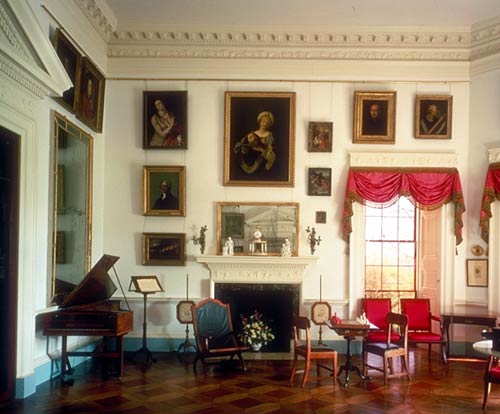The Open Society and Its Enemies: Karl Popper
When I first heard of Karl Popper, many years ago, it was for his articles on the philosophy of science. He was most famous in that field for having asserted that "the scientific status of a theory is its falsifiability, or refutability, or testability.. " [http://www.stephenjaygould.org/ctrl/popper_falsification.html]
But I learned only recently that he also contributed to the philosophy of democracy. Here are some of his insights pertaining to political philosophy, as reported by others:
- …[I]t is time for the ‘open society’, the one which: “sets free the critical powers of man” and “in which individuals are confronted with personal decisions”….[from “The ‘complete review’s Review” of The Open Society and Its Enemies, http://www.complete-review.com/reviews/popperk/opensae.htm]
- “Economic power must not be permitted to dominate political power; if necessary, it must be fought and brought under control by political power.” [from “The ‘complete review’s Review”]
- “Instead of posing as prophets we must become makers of our fate. We must learn to do things as well as we can, and to look out for our mistakes.” [from “The ‘complete review’s Review”]
- The state is a necessary evil: its powers are not to be multiplied beyond what is necessary. [from “Liberal Principles” by Karl R. Popper, http://www.liberalsindia.com , Liberal Position Papers #2]
- Freedom of thought, and free discussion, are ultimate Liberal values which do not really need any further justification. Nevertheless, they can also be justified pragmatically in terms of the part they play in the search for truth. Truth is not manifest; and it is not easy to come by. [from “Liberal Principles”]
- “Because [Popper] regards living as first and foremost a process of problem solving he wants societies which are conducive to problem solving….a society organized on such lines will be more effective at solving its problems, and therefore more successful in achieving the aims of its members, than if it were organized along other lines.” [from “Philosophy and the Real World: An Introduction to Karl Popper”, by Brian Magee, Open Court Publishing, 1985; as are the following quotations. Extracts at http://lachlan.bluehaze.com.au/books/magee_popper_open_society.html.]
- The price of freedom is eternal vigilance.
- The vital question is not ‘Who should rule?’ but ‘How can we minimize misrule – both the likelihood of its occurring and when it does occur, its consequences?’
- The general guiding principle for public policy put forward in The Open Society is: ‘Minimize avoidable suffering.’
- …[W]e do not know how to make people happy, but we do know ways of lessening their unhappiness.
- Instead of the greatest happiness for the greatest number, one should demand, more modestly, the least amount of avoidable suffering for all; and further, that unavoidable suffering – such as hunger in times of unavoidable food shortage – should be distributed as equally as possible.




2 Comments:
Thinking seriously about autobiography or, indeed, any intellectual discipline, requires us to acknowledge our ignorance of the subject. This is a prerequisite wrote Karl Popper, a man of modest background who became one of the twentieth centurys most influential philosophers. He even went so far as to say that the subject matter hardly matters; what matters is our desire to solve profound problems, to get the questions right insofar as the subject matter and related information is concerned. This is certainly a provocative idea when applied to the profound problems behind autobiography and the writing of it. To apply a little of Popper's way of looking at things here, his way of looking at anyones life, one might ask the following two questions about the writing of autobiography: firstly,what is the best method of promoting the growth of knowledge of ones life and the control of error in studying ones life? And, secondly, if all learning is the modification of some prior knowledge and if observations do not, as commonly supposed, give rise to theories, but on the contrary, if their role is exclusively restricted to the criticism, the testing,of theories--what then does the role of my observation of my past have in relation to the explanation, the critical evaluation of my life?
There is no opposition between imagination and reason because they have different and complementary roles to play. There is no antagonism between theorising and fact finding provided that we have a clearly formulated problem in mind when we start looking for facts. The idea of the passive observer-collector in the autobiographical process cannot be sustained. Thus, this autobiography is not just the result of fact collecting. If the scientist--and in this case my own dear self--wants to advance the frontier of a knowledge which is my own life, my religion and my society, he has to make an effort and bring into action both the imagination and the critical faculties.
This book attempts to harmonise the relationship between the various elements of the scientists'and the artists' situation. These elements include traditional beliefs, criticism, logic, imagination and experimental trials. These elements play complementary roles and so there is no need for the tensions and antagonisms that flow from partial and narrow views of problem-solving and creativity, whether in science, art, technology or daily life.
Like Popper, I feel in all modesty overwhelmed by ideas,only some of which I can put down on paper. I am fully engaged intellectually and it is a wonderful feeling. For those who would like to explore this notion of an intellectual autobiography I recommend Poppers: Unended Quest, An intellectual Autobiography,Routledge, London, 1992 edition. I am not in Poppers league but my admiration for his mind, his wisdom and the relevance of his work to my own autobiography is immeasureable.
Dear POFE,
Thanks for the suggested reading. I am only a student of philosophy, but I can appreciate Popper's contributions to various fields of inquiry. I bought one of his books, "All Life is Problem Solving" [also Routledge, 1999]. At this point, I'd have to say he's my favorite philosopher.
Post a Comment
<< Home